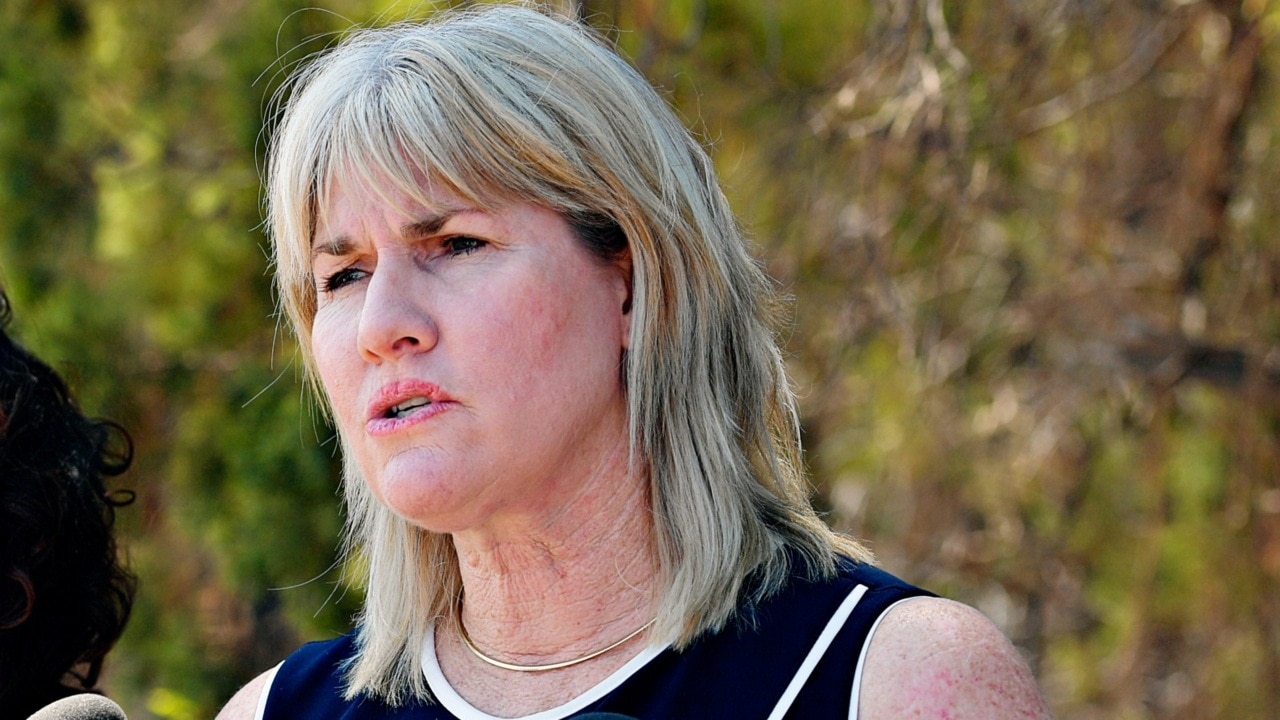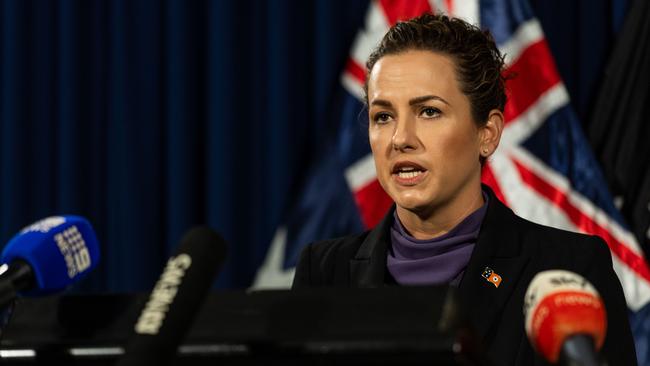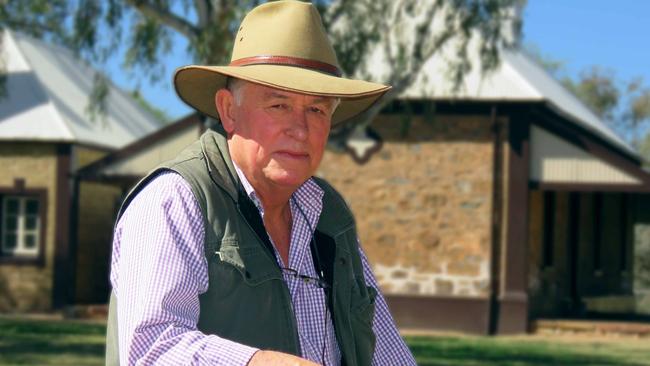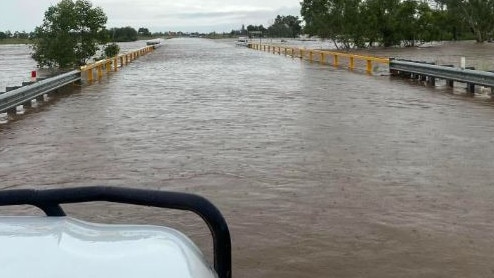Chief Minister elect, Lia Finocchiaro, to target Canberra dollars during federal election
The Commonwealth has been shamed into providing top-up funding to the Territory, but the Chief Minister elect will be trying to secure more. Find out what she says she’ll do.

Northern Territory
Don't miss out on the headlines from Northern Territory. Followed categories will be added to My News.
The new CLP government will leverage Commonwealth finances to try and reverse longstanding social and economic deficits in the Northern Territory.
Chief Minister elect Lia Finocchiaro said the incoming government had “a huge Territory agenda” for the Commonwealth.
“As we come into a federal election period over the coming months, there will present a huge opportunity for the Territory to really put it to the major parties about what the Territory needs,” Ms Finocchiaro said.
“I certainly know that the Territory isn’t getting its fair share and we will fight very hard for the betterment of the Territory. We know there is infrastructure deficits that need to be addressed that we inherited on taking self government.

“The fact that our Stuart Highway, Vic Highway and Barkly Highway continue to be washed out and underwater year-on-year is totally unacceptable, so there will be a big federal agenda that we will raise continuously.”
The Commonwealth Government has recently made large cash contributions to boost the Territory economy including a $4bn partnership with the NT Government for remote housing, $840m to try and start-up the Arafura Rare Earths project and $1.5bn to develop the Middle Arm sustainable development precinct.
In a recent interview on the ABC’s Insiders program, Prime Minister Anthony Albanese spelt out the crisis facing the Northern Territory economy, without offering an ongoing actual solution other than Commonwealth cash contributions.
“The Northern Territory here, in terms of remote communities, has an acute issue of shortage,” he said.
“And the Northern Territory – unlike the wealth that frankly is being created in Western Australia and Queensland – the Northern Territory Government’s fiscal position means that there’s a need for the federal government to step up across a range of areas.”

His comments came just weeks after Federal Labor announced it would block the lease renewal on the Jabiluka mine, one of the richest uranium prospects in the world.
CDU adjunct Professor Rolf Gerritsen said the law-and-order crisis that erupted in Alice Springs in 2022 following the NT Government’s refusal to reinstate grog bans in communities, appeared to have embarrassed the Commonwealth into action.
“The turnaround in the Federal government’s attitude reflects national interest in the law and order situation here,” he said.
“Ironically the publicity afforded to Alice Springs is driving this new direction, plus a side order of failure on Closing The Gap indicators.
“The Territory is embarrassing the Federal Government.”
Despite that, he said the Territory was still “systemically underfunded” and lasting change to the NT economy must be driven out of Canberra, not Darwin.

Professor Gerritsen points to “four strikes” from the Commonwealth that have had a significant impact on holding back the economy:
> Strike one - Territory outstations: The Commonwealth “sloughed off” responsibility for Aboriginal outstations and gave the NT just $90m in compensation. The money was “ridiculously insufficient”.
> Strike two - The Commonwealth’s Western Australian GST deal: “The Feds allowed WA to systematically debauch the horizontal fiscal equalisation element of the Commonwealth general purpose grant scheme,” he said.
> Strike three - Systemic underfunding: The NT receives one per cent of special purpose Commonwealth grants to bankroll health, education and other services. “We suffer far higher levels of disadvantage compared to other Australian jurisdictions. I think this is the point of Albo’s comments.”
> Strike four - Local government underfunding: “Obviously, our regional councils are severely underfunded compared with rural councils in other jurisdictions. Even our urban councils like City of Darwin gets a fraction of the money that is paid to Bendigo, a city of comparable size, though with less entrenched disadvantages.”





